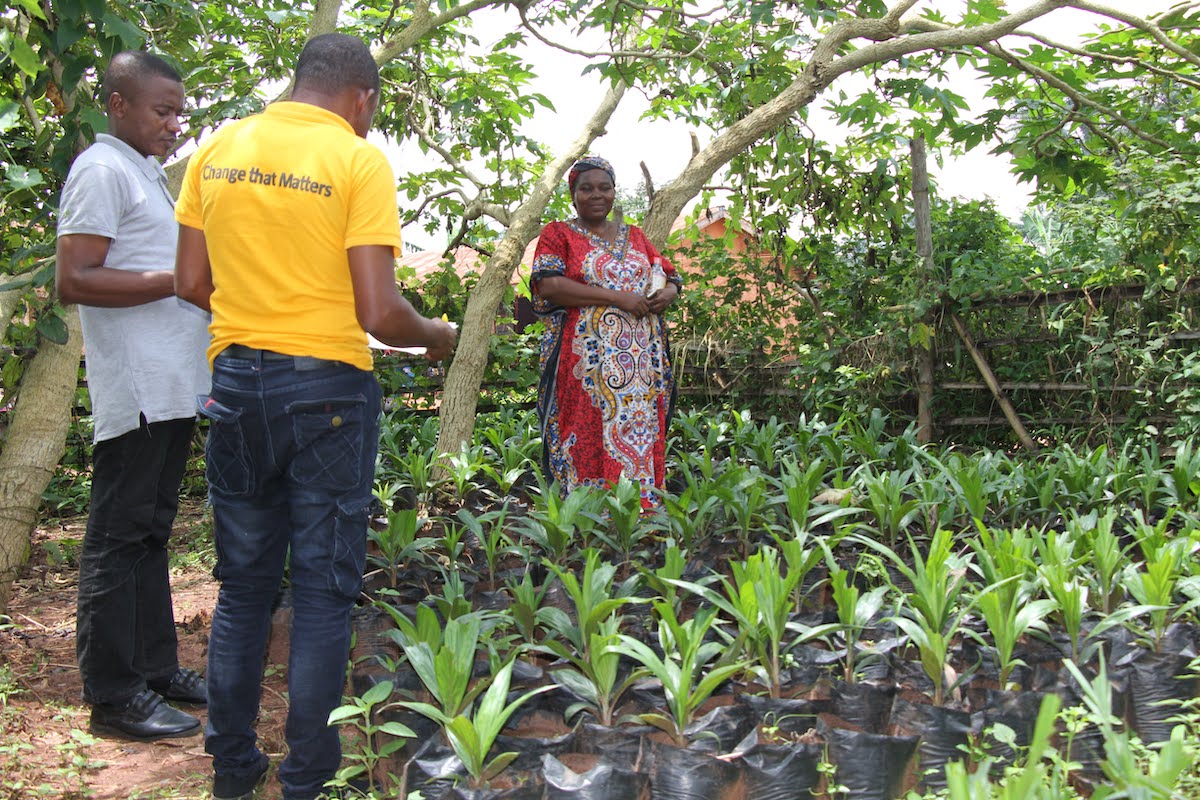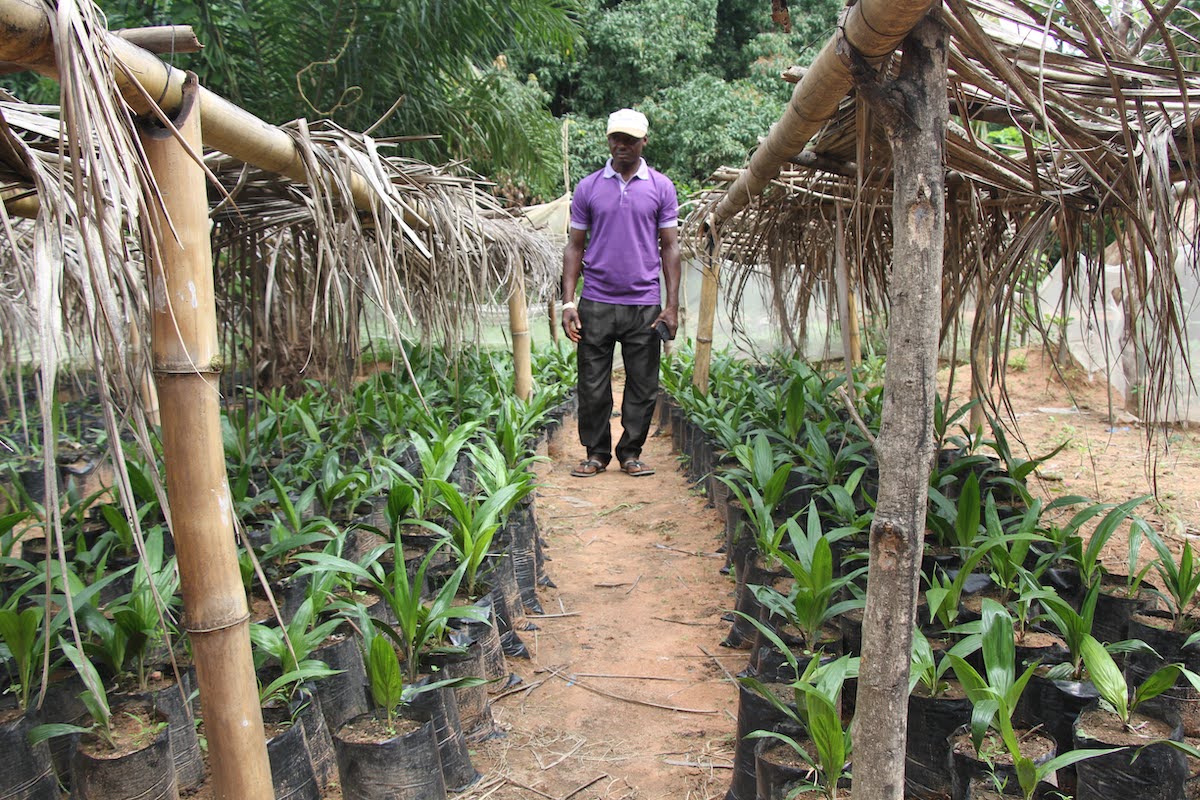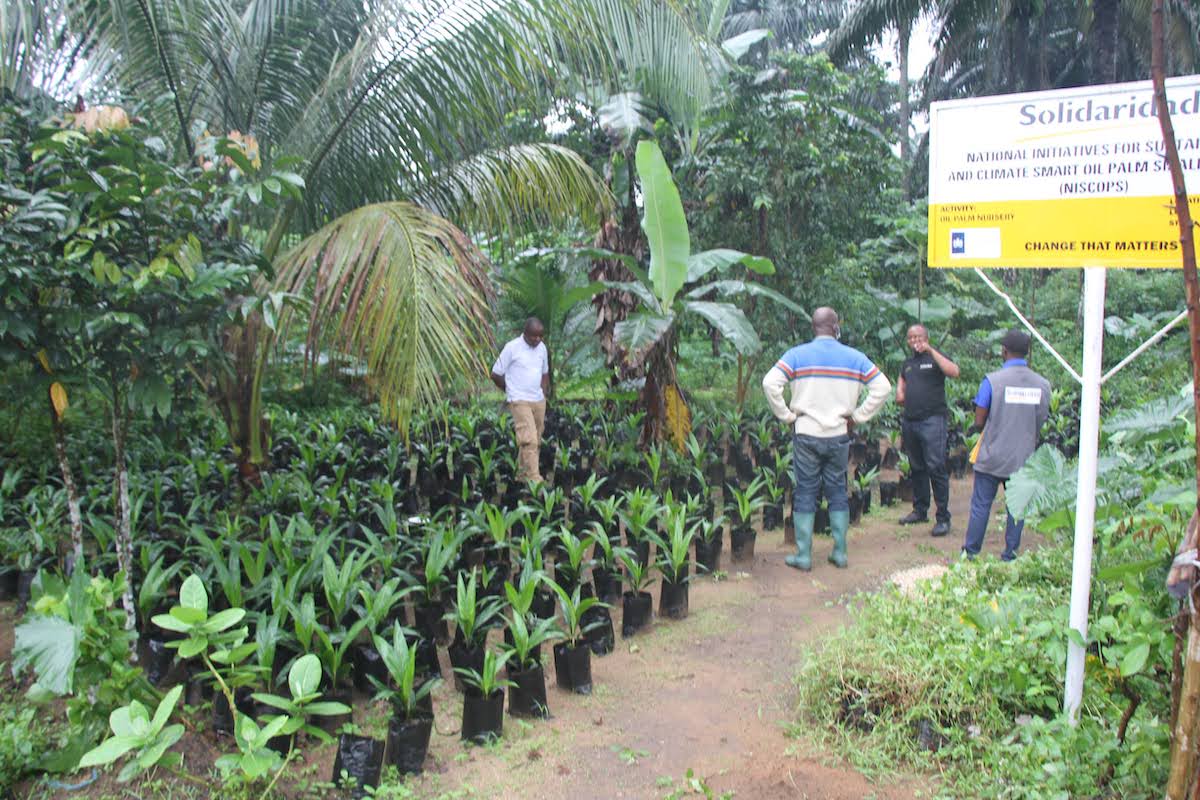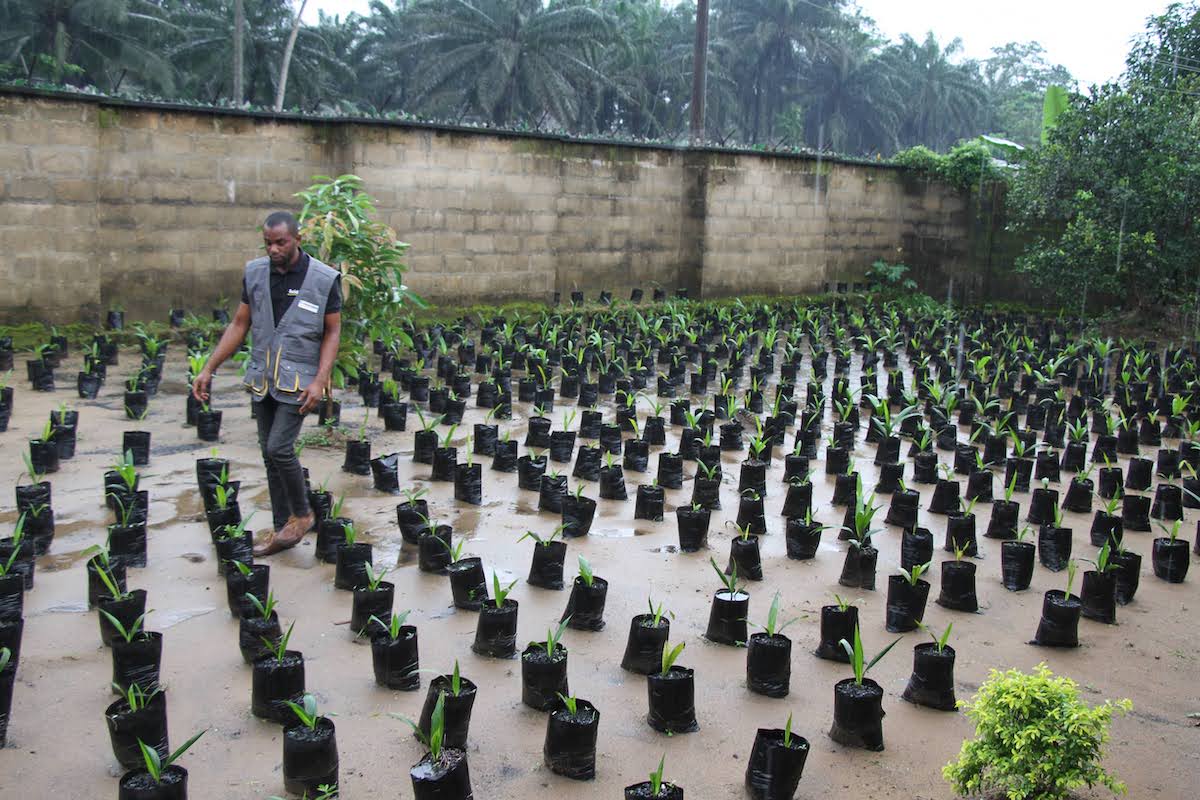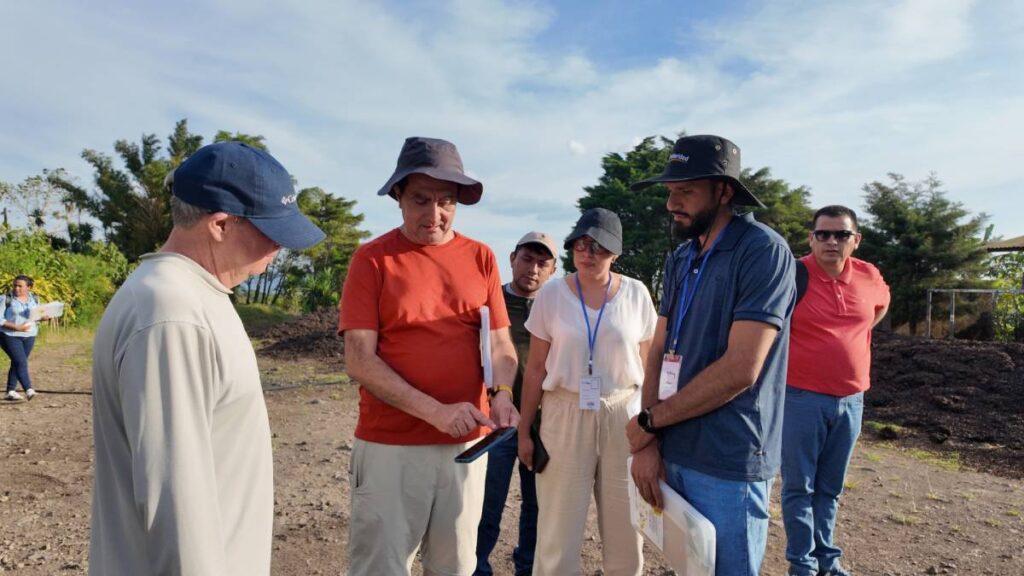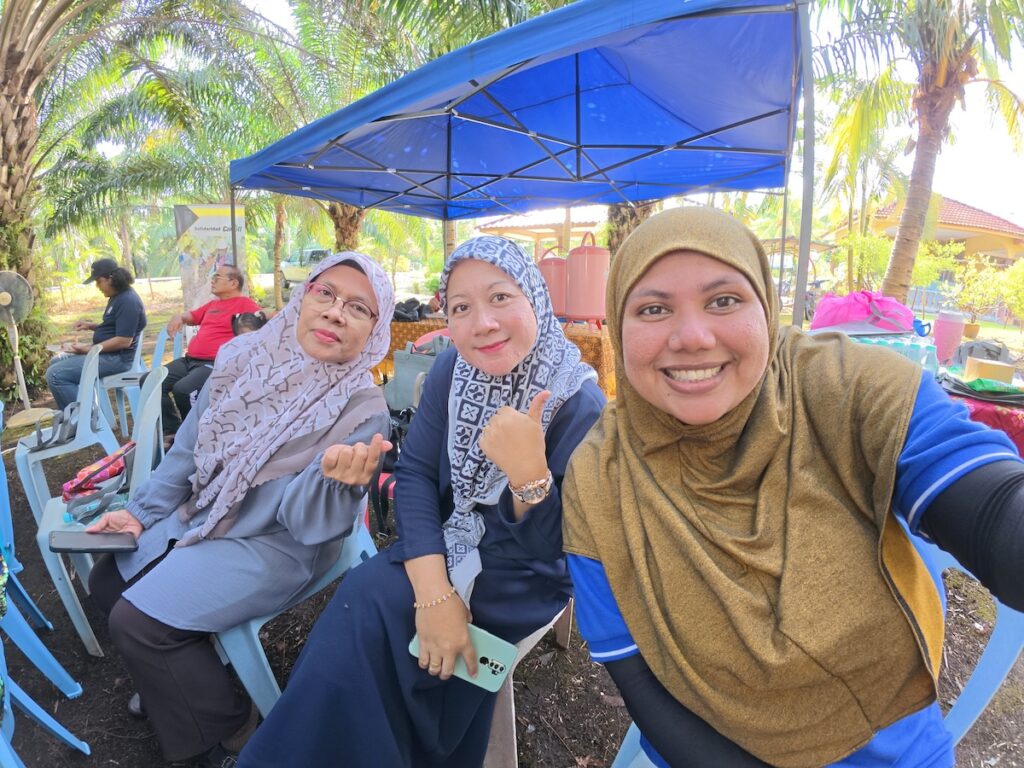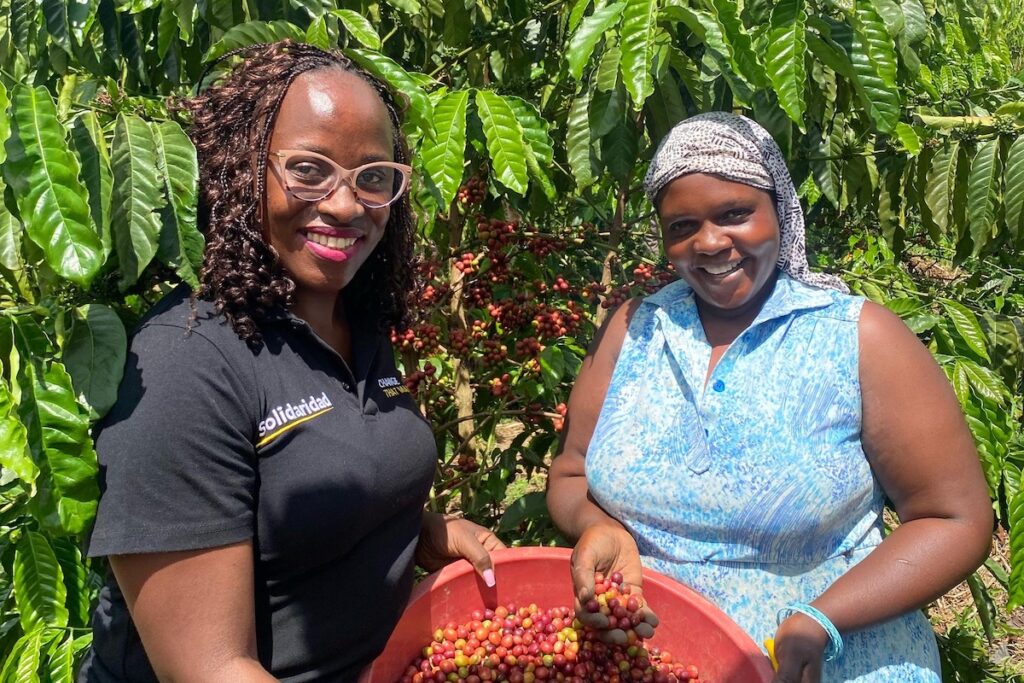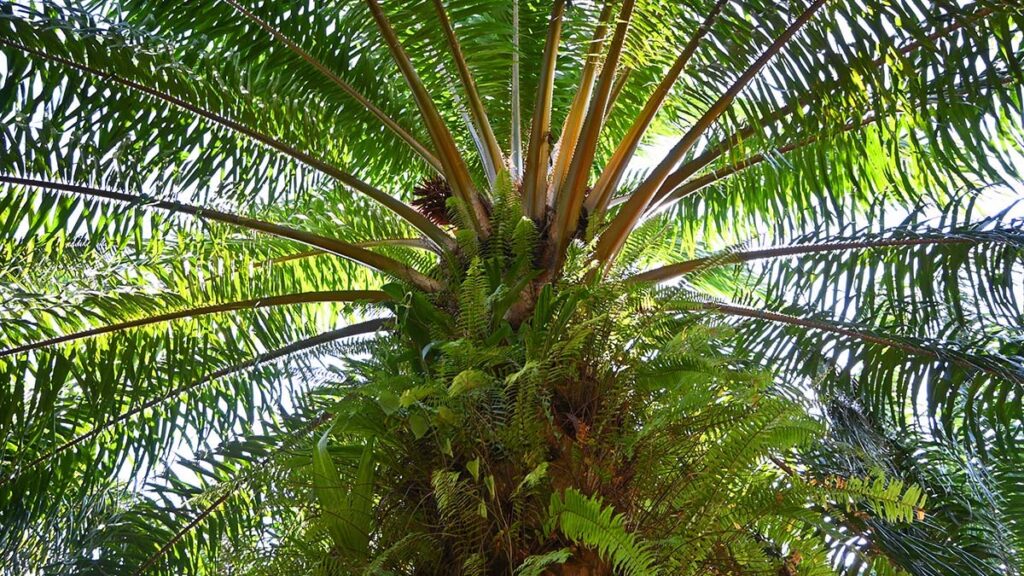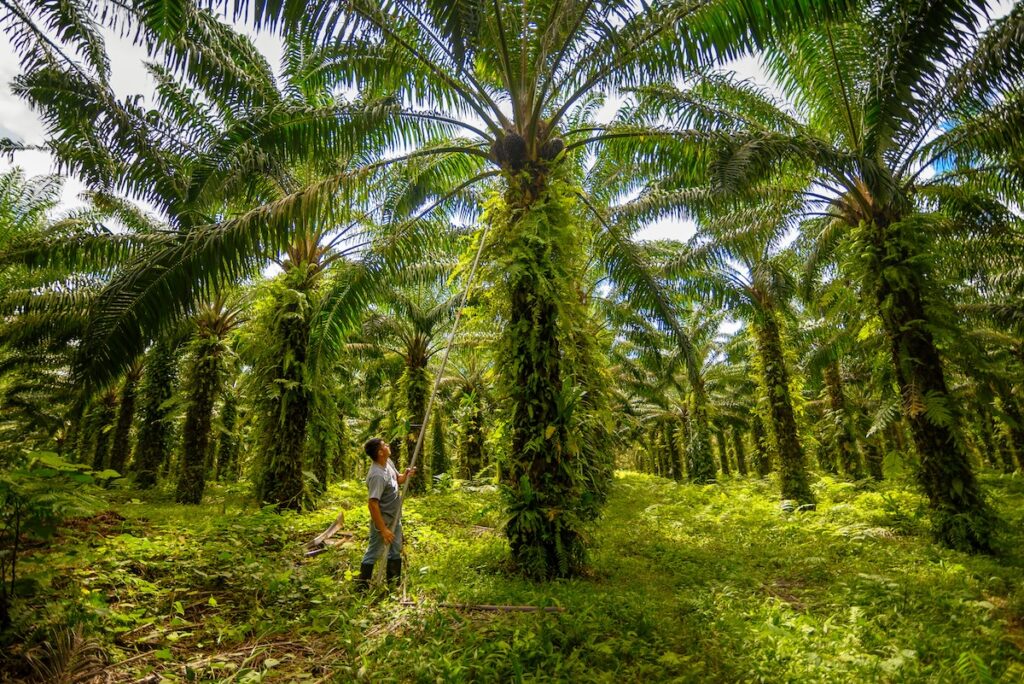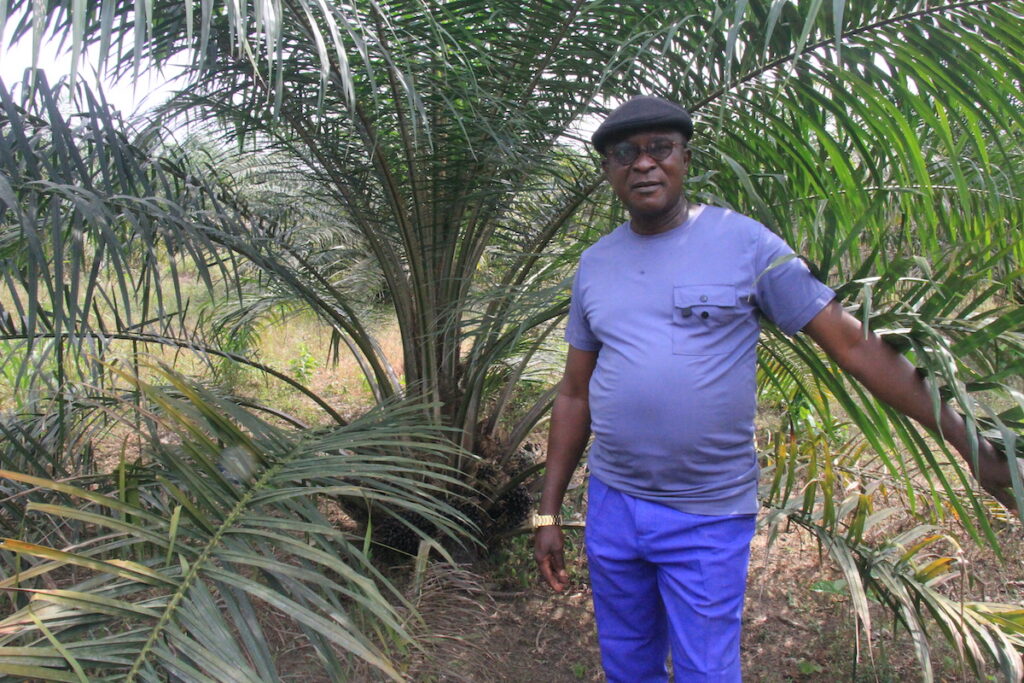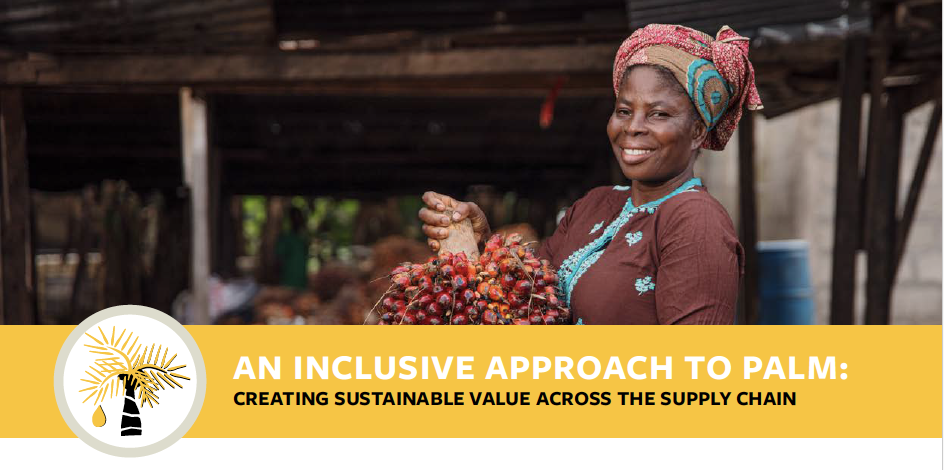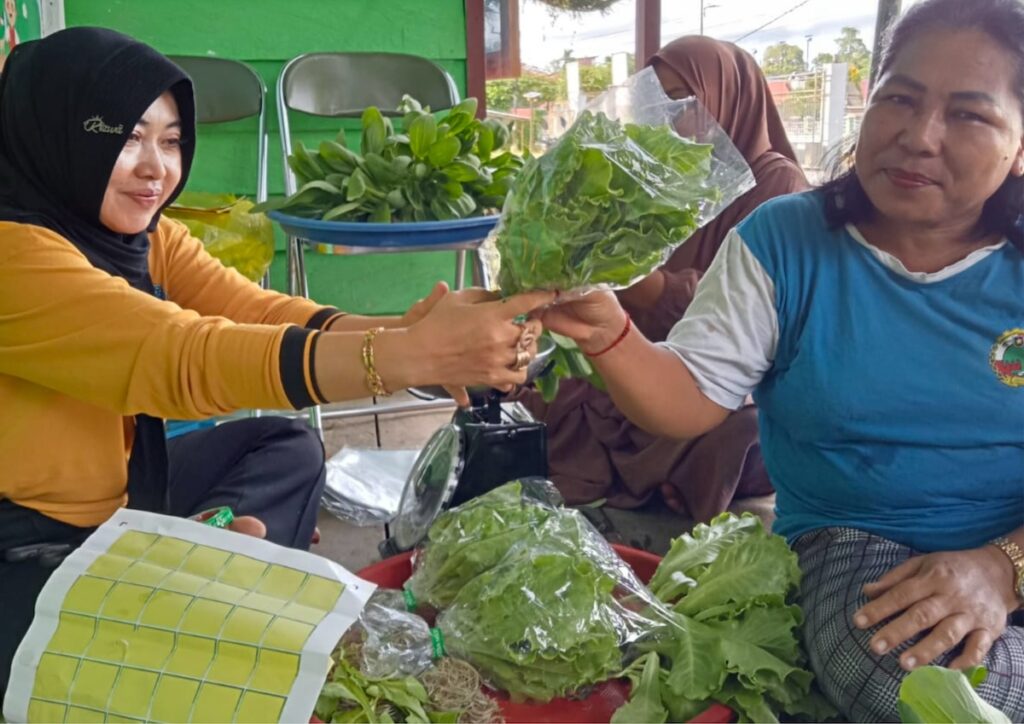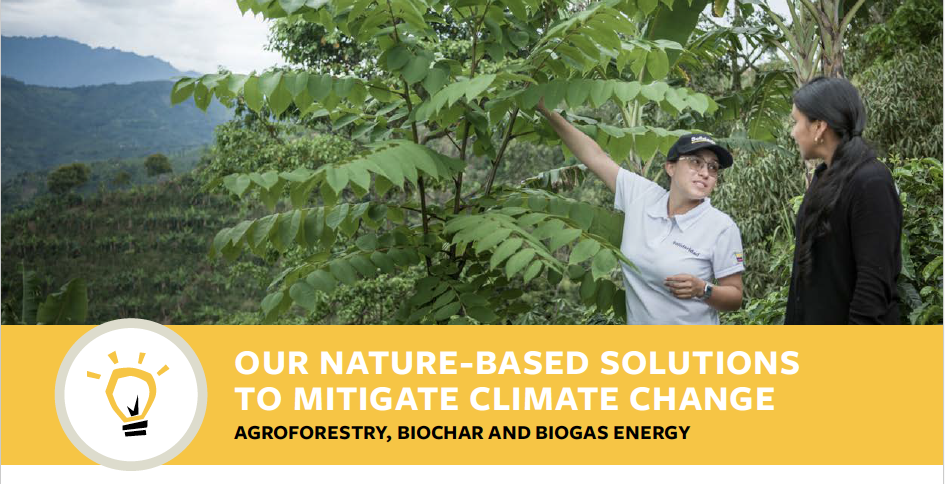In all, 36,000 hybrid oil palm seedlings are being raised from the nurseries established in communities in the Akwa Ibom, Cross River, Enugu, and Kogi states that are benefiting from NISCOPS. The programme seeks to contribute to the attainment of self-sufficiency in palm oil production through climate-smart agricultural practices and sustainable intensification of present farms, and improve smallholders’ productivity and livelihood.
The hybrid seedlings from the nurseries will also serve as a means of reforestation for states like Enugu and Kogi, which are within the savanna region of the country. This will contribute to the reduction in the emission of greenhouse gases into the environment.
Silvester Ogallah, an oil palm farmer, said the improved seedlings are essential in addressing the low productivity of current farms in his community.
We have aged wild groves that are above 18 meters tall, unproductive, and pose a high risk to harvesters of fresh fruits bunches. The newly established oil palm nurseries by Solidaridad give us hope of a more productive oil palm species.
Silvester Ogallah, Oil Palm Farmer
To ensure proper management of the nurseries in the communities, Solidaridad has trained 48 youth, including women, on the preparation and management of oil palm nurseries. They also received agricultural entrepreneurial skills training to enable them to earn an income and ensure the sustainability of the nurseries in the communities.
Kene Onukwube, programme manager for oil palm at Solidaridad in Nigeria, said the planting of wild oil palm seedlings in most parts of the country accounts for the low productivity of the commodity.
He said Solidaridad’s goal, therefore, is to unlock the potential of improved seedlings to transform the oil palm sector of the country to improve farm-level productivity and farmer income.
The National Initiatives for Sustainable and Climate-Smart Oil Palm Smallholders (NISCOPS) programme, supported by the Kingdom of the Netherlands and Henkel, is reclaiming sustainability in the Nigerian oil palm sector by building the capacity of the smallholders on good practices, creating market linkage for palm oil, and influencing enabling policies for the oil palm sector.
The five-year (2019-2023) programme is implemented in partnership with The Sustainable Trade Initiative (IDH).

